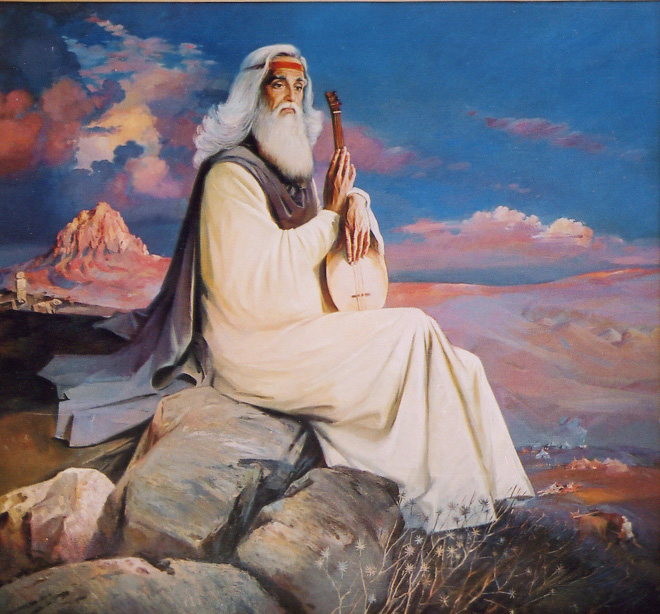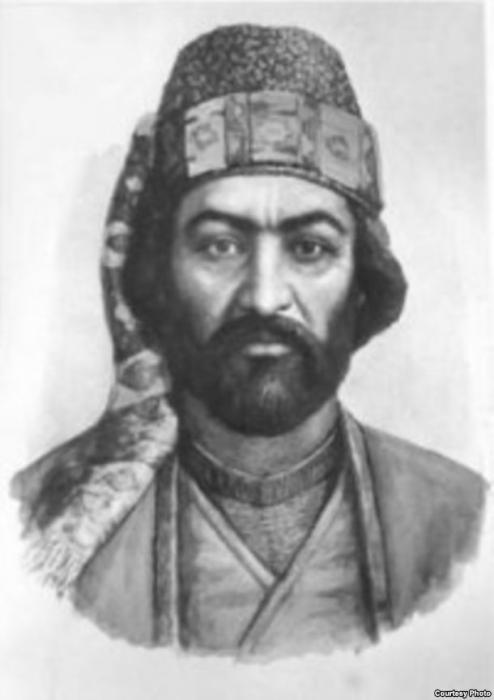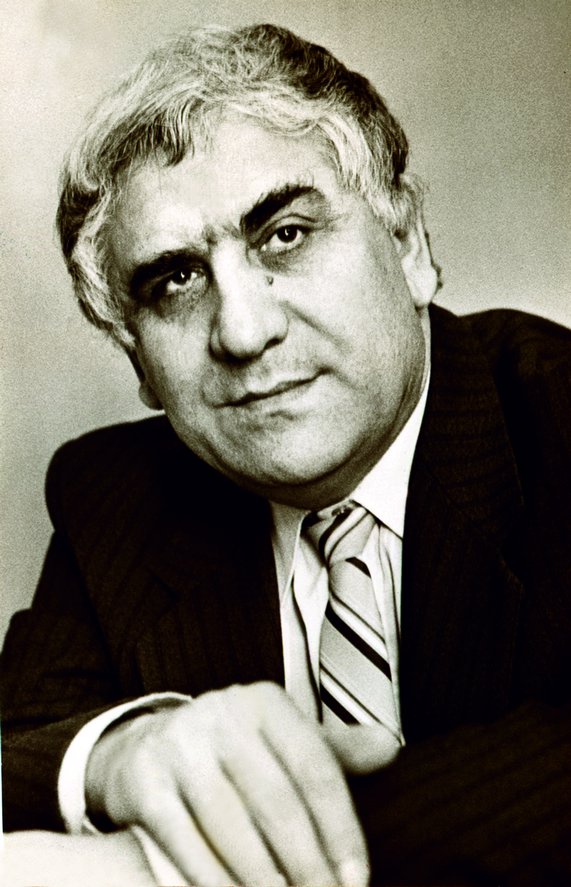GENERAL INFORMATION
The source of Azerbaijani literature is the rich and deep Azerbaijani folklore. Azerbaijan has one of the richest folklore treasures in the world. The traces of the mythological-artistic outlook are still manifest in folklore and classical literature.

One of the peculiarities of Azerbaijani folklore is its commonality with the folklore of other Turkic peoples. Among the epics of common Turkic folklore, "Oghuzname" are a special series. In the epic “Migration”, “Ergenekon”, “Shu”, “Return”, the whole problems of the prototurks in their entirety have their artistic-mythological reflection. Most of these samples were reflected in the work of the Turkish scientist Kashgarli Mahmud "Divanu lugat-it-turk" (“Divan of the Turkish language”), who lived and created in the XI century. These epics embody the artistic and mythical outlook of the great migration of peoples.
Azerbaijani folklore has a rich genre. Fairy tales and epics from epic folklore genres, proverbs, and sayings expressing the wisdom of the people throughout history have had a strong influence on the folklore and classical literature of neighboring nations.
In the XVI-XVIII centuries, the genre of the epic developed especially, such powerful artists as Gurbani, Tufarganli Abbas, Sari Ashig, Khasta Kasym. Medieval love epics, mostly related to lore, are “Gurbani”, “Ashyg Garib-Shahsanam”, “Asli-Karam”, “Abbas-Gyulgas”, “Shah Ismayil-Gulzar”, “Tahir-Zohra”, “Alikhan Pari”, “Arzu-Gambar”, heroic epic “Koroghlu” is the product of this era. Unlike love epics, "Koroghlu" continues the tradition of the "Dada Gorgud" epic, collecting different branches, and therefore is called an epic.
The greatest monument of Azerbaijani folklore that has come down to us in writing is the epic "Kitabi-Dada Gorgud".
The most ancient example of written literature is the Avesta, which appeared in the territory of the Medes in the 6th century BC and was authored by Zoroaster. Here, the dualistic worldview of the Azerbaijani people, the ideas of a primitive man about the struggle between good and evil are reflected in art.
The poems of the Azerbaijani poets of the 7th-8th centuries Abu Muhammad ibn Bashar, Musa Shahavat, and Ismail ibn Yasar to some extent differ from the Arabic poetry of that time in their critical spirit and original artistic features. The tradition of writing works of art in Arabic continued among Azerbaijani poets until the XI-XII centuries, and artists such as Khatib Tabrizi and Masud ibn Namdar created works of art in this language that enriched Azerbaijani literature.
From the 11th century, with the creativity of Gatran Tabrizi, the Azerbaijani school of poetry enters a new stage of development using another language — the language of dari. Gatra's Divan, which came to us, played an important role in the further development of the Azerbaijani poetry school. Azerbaijan's accession to the Seljuk state, created by the Oghuz Turks in 1054, not only stimulated the development of science, art, and literature but also completed the formation of the Turkic-speaking Azerbaijani people.
Azerbaijani literature In the 12th-century, the school of poetry, which had a strong influence on the further development of the Middle East and world literature, completed its formation, and its world-famous luminaries such as Khagani Shirvani and Nizami Ganjavi appeared. The twelfth and sixteenth centuries are considered the peak of the Renaissance of Azerbaijani literature due to the works of Nizami and other artists of his time.
In the literary environment of the palace - under the patronage of Shirvanshahs and Atabeys from the XIIth-century Azerbaijan states, such poets as Abul-ula Ganjavi (1096-1159), Mahsati Ganjavi (1089-1183), Khagani Shirvani (1126-1199), Felaki Shirvani (1126-1160), Mujangiraddin (-1190), Izzeddin Shirvani didn’t lose their high artistic and aesthetic significance.

Examples of 13th-century epic poetry include the anonymous poems of Dastani-Ahmad Harami and Gul Ali, "Kissey-Yusif." The South Azerbaijani poet Humam Tabrizi (1201-1314), who lived the entire 13th-century and the first decades of the 14th century and went through a long career, was also one of the prominent public and political figures and talented poets of this period. Among the many works written by Sheikh Mahmud Shabustari (1287-1320), known in Azerbaijani literature as a prominent representative of the Sufi movement, the poem "Gulshani-raz" attracts more attention. In the 14th-century, Azerbaijani poets such as Suli Faqih and Mustafa Zarir also wrote works in their mother language on the theme of "Yusif and Zuleykha" based on the Koran. The poem "Varga and Gulsha" by Yusif Maddah, an artist of the same century, should be considered one of the best examples of epic poetry in the native language. All these works played a certain role in the further development of our epic poetry. Outstanding Azerbaijani poets and thinkers who wrote in Persian - Nasreddin Tusi (1201-1274), Maragali Ovhadi (1274-1338), Arif Ardabili (1311-) tried to create works of their scale, mainly based on Nizam traditions. In the Persian poem “Mehr and Mushtari” written by Assar Tabrizi (1325-1390), Nizami's poems "Khosrov and Shirin" and "Leyli and Majnun" geniusly reflects pure divine love through the prism of the free friendship of two young people.
The principles of humanism, formed in literature and socio-political thought during this period, reached their apogee, especially in the work of Seyid Imadaddin Nasimi (1369-1417). Imadaddin Nasimi - after his great predecessor Nizami Ganjavi, is known in our literature as one of the ardent propagandists and heralds of the ideas of humanism.
The peak of the post-Nizamin ideas of the Renaissance in the Azerbaijani literature of the 12th-16th centuries was Muhammad Fizuli, known in Western oriental studies as the “poet of the heart”. Among them is the great contemporary of Fuzuli and, to some extent, his patron - the great Azerbaijani statesman and poet Shah Ismail Khatai (1487-1524) has a special place.
Artists such as Molla Vali Vidadi (1707-1808), especially Molla Panah Vagif (1717-1797), brought poetry closer to the people with their works written in a simple, lively language.
Azerbaijani literature at the beginning of the XIXth century, an important event in the historical destiny of the Azerbaijani people - With the incorporation of Azerbaijan into the Russian Empire, pro-Western tendencies in literature, as well as in culture as a whole, became much stronger. Under the influence of this, national and realist-secular motives take a leading position in the literature. Gasim bey Zakir (1784-1857) determines the direction of poetic development. The work of the southern poet Seyid Abulgasim Nabati (1812-1873), who lived and worked almost at the same time as Mirza Fatali Akhundzadeh, was based on the traditions of millennial Eastern poetry and, along with all its aesthetic beauty, did not go beyond propagating Sufi ideas. During this period, over shoulders of artists and thinkers such as Abbasgulu aga Bakikhanov (1794-1847), Mirza Shafi Vazeh (1792-1852), Ismayil bey Gutgashinli (1801-1861), who got acquainted with Russian and Western orientalists and poets and received advanced humanistic ideas from them, rises genius Mirza Fatali Akhundzadeh, it connects Azerbaijani literature with Russia and the West once and for all, and makes it one of the contemporary world pieces of literature.
During this period, based on the example of Europe and Russia, outstanding representatives of realist and romantic literature, such as J.Mamedguluzade (1866-1932), M.A.Sabir (1862-1911), H.Javid (1884-1944), M.Hadi (1880-1920), Sahhat (1874-1918), A.Shaig (1881-1959) raised Azerbaijani literature to the level of the best examples of world literary and cultural thought. Among them, representatives of realist literature J.Mammadguluzadeh and M.A.Sabir, romantic poetry M.Hadi, A.Shaig, dramaturgy H.Javid played a greater role in the development of Azerbaijan's literary and social thought.
Firidun bey Kocharli (1863-1920) was the great enlightener and the author of the history of Azerbaijani literature. In general, repression is a bloody black page in the history of Soviet literature in Azerbaijan.
Among the artists who were repressed in those terrible years were very prominent representatives of Azerbaijani literature and art, literary criticism, and linguistics: the great playwright H. Javid, the genius poet M. Mushfig, the outstanding prose writer and literary critic S. Huseyn, the first (and last) author of the anthem, the famous poet A. Javad, the prolific writer and scientist Y. V. Chamanzaminli, professor of philology, polyglot scientist B. Chobanzade, rector of Baku State University, writer T.S. Shimurg, Khadija khanum Gaibova, who opened the first Eastern Conservatory. in Baku — an outstanding theologian-scientist, Baku veteran Mir Mohammad Kazym aga, folklorist-scientist H. Zeynalli, the most outstanding performers of tragic roles on our stage A. M. Sharifzade, U. Rajab and many others.
Among our emigrant intellectuals are Alibay Huseynzade, Ahmadbey Agaoglu, Mohammad Amin Rasulzade, Mirza Bala Mahammadzade, Alimardanbey Topchubashov, Jeyhun Hajibeyli, Samad Agaoglu, Ahmad Jafaroglu, Abdulvahab Yurdsever, Almas Yildirim, Banin (Ummulbanu), Nagy Huseyngali, Teymur Ateshli, Musa Zayam, Ibrahim Arslan, Ali Azertekin and dozens of others. M.S Ordubadi (1872-1950) was one of the well-known artists who developed the novel, especially the historical novel genre of Azerbaijani literature during this period. Samad Vurgun (1906-1956) is one of the most outstanding poets and playwrights of the Soviet era.

Poems written by Rasul Rza (1910-1981), mainly in free verse, play an important role in the development of poetic thought in Azerbaijan during the Soviet period.
Ilyas Efendiev (1914-1996) rendered great creative services in enriching Azerbaijani prose with lively, fresh, artistic images and colorful means of description, in the development of the lyric and psychological style in our drama. Ali Valiyev, Huseyn Ibrahimov, Huseyn Abbaszade, Bayram Bayramov, Jamil Alibeyov, Vidadi Babanli, Alaviya Babayeva, Suleyman Valiyev, Aziza Ahmadova, Afgan Asgarov, Gulhuseyn Huseynoglu, Alibala Hajizade, and others also contributed to the enrichment of Azerbaijani prose with new themes and heroes.
There are prose writers and poets in the 60s, such as Isa Huseynov, Mammad Araz, Sabir Ahmadov, Anar, Elchin, Sabir Rustamkhanli, Alakbar Salahzade, Farman Karimzade. Special mention should be made of Ismail Shikhli (1919-1994) and his novel "Deli Kur". In the poetry and dramaturgy of such masters as Bakhtiyar Vahabzadeh, Nabi Khazri, Nariman Hasanzadeh instructive pages of folk history, lyric and psychological experiences prevail. The poems of these poets, as well as Gabil, which are always relevant, the poem "Nasimi", many works of Adil Babayev, Islam Safarli, Huseyn Arif, Gasim Gasimzade, Aliaga Kurchayli are valuable examples of our literature.
Among those who prepared the artistic basis for the new stage of Azerbaijani literature and themselves are actively involved in this process are Ali Karim, Khalil Rza, Jabir Novruz, Mammad Araz, Fikret Goja, Fikret Sadig, Alakbar Salahzadeh, Isa Ismayilzadeh, Sabir Rustamkhanli, Famil Mehdi, Tofig Bayram, Arif Abdullazade, Huseyn Kurdoglu, Ilyas Tapdig, Musa Yagub, Chingiz Aliyoglu, Nusrat Kasamanli, Zalimkhan Yagub, Baba Veziroglu, and other poets should be noted.
During the periodization of the centuries-old history of Azerbaijani literature, the principles of civilization, the realities of literary and historical processes, literary trends in Azerbaijan, and the ideology of Azerbaijanism have been scientifically substantiated.
The new concept of periodization of the history of Azerbaijani literature covers the following stages: ancient Azerbaijani literature, Azerbaijani literature of the early revival, Azerbaijani literature of the Renaissance, Azerbaijani medieval literature, early modern Azerbaijani literature, educational realism of Azerbaijani literature, national democratic movement of Azerbaijani literature, the stage of socialist realism in Azerbaijani literature, the early period and the transition period.
It should be noted that the history of Azerbaijani literature is currently divided into the Ancient period, the Middle Ages, the New Age (ADR period), the Recent period (Soviet period up to the 60s, starting from the 60s), the period of Independence.



